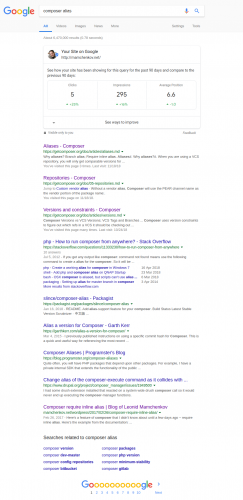Here’s something I’ve never seen before. When searching for something on Google, I got a new widget “Your Site on Google” right above the search results. Erm … what?
It took me a second to figure it out. Google, of course, knows who I am, since I am logged into my Google Chrome and into all of my Google Apps. It also knows that I manage the “mamchenkov.net” website, via Google Search Console. So when I search for something on Google and first page of results includes a page from my own blog, it must be thinking that I’m there to monitor, test and improve my SEO. It then provides me with some metrics and handy links to do so. It also mentions that these are only visible to me, not the rest of the people searching.
I don’t think there’s anything wrong with it, but it is weird for a second for sure.
